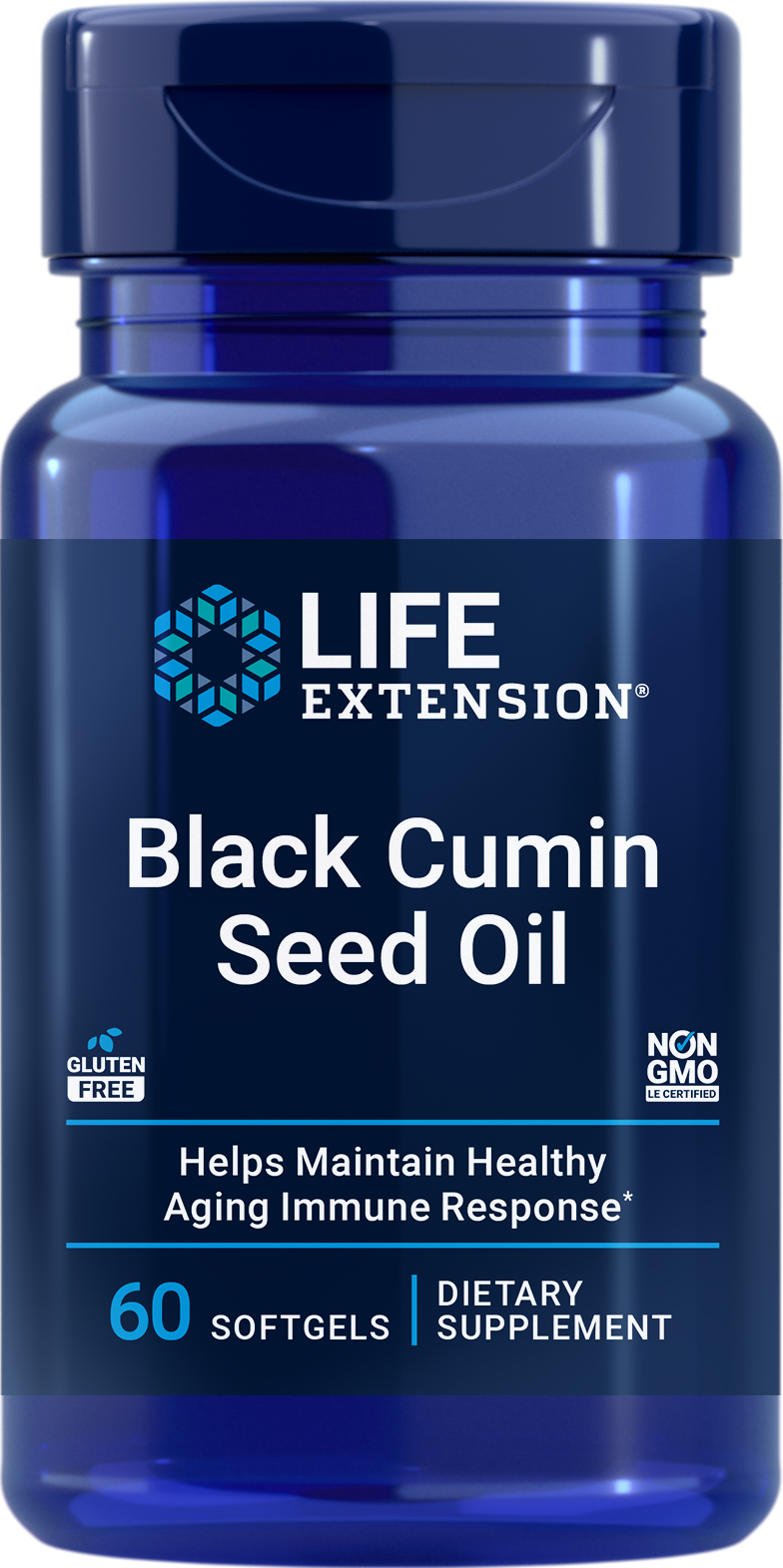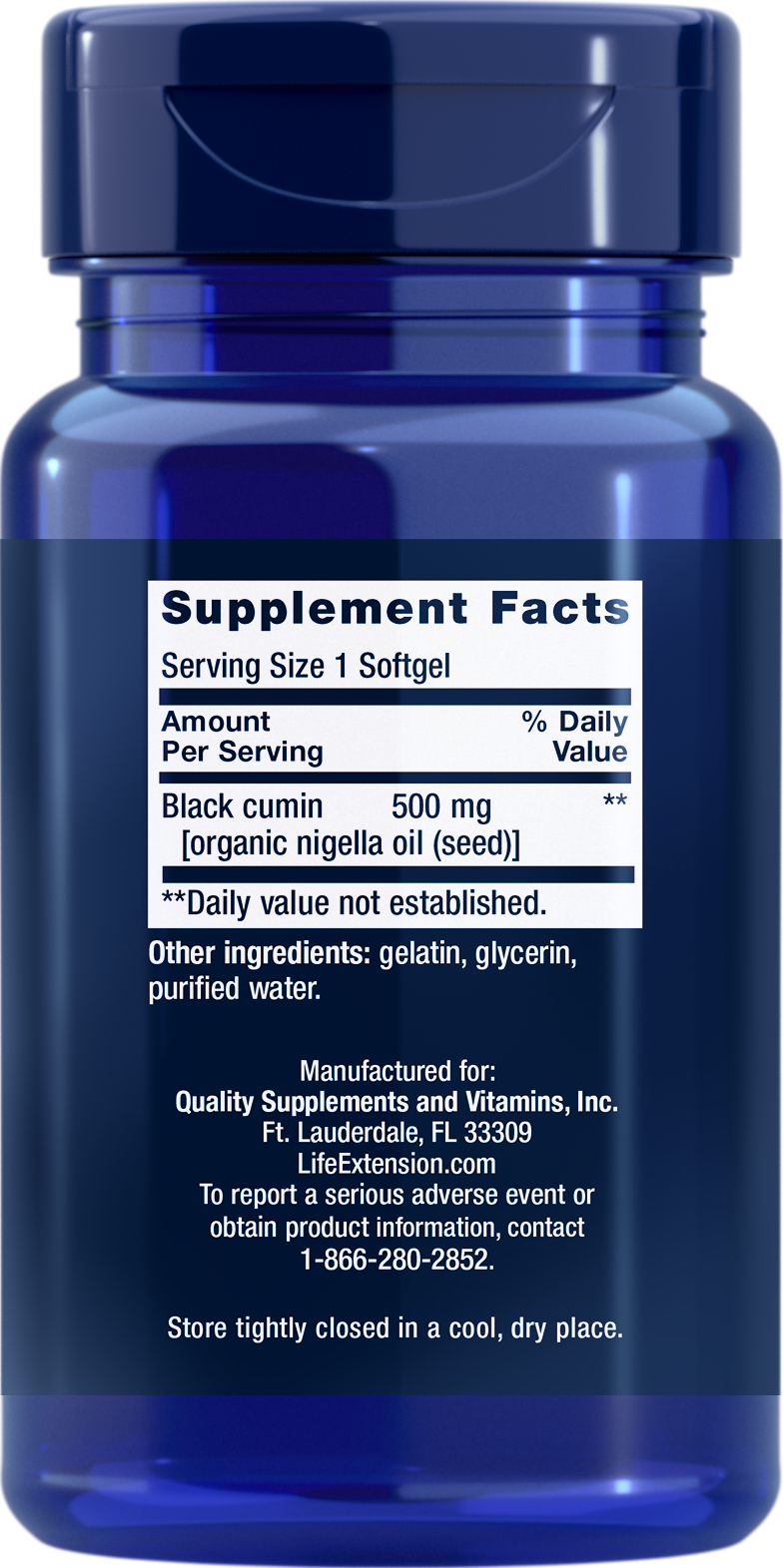Black Cumin Seed Oil
Immune support & healthy inflammatory response
Black Cumin Seed Oil
Immune support & healthy inflammatory response
For you, if you want to support inflammatory factors and optimal immune system function
The ingredients of Black Cumin Seed Oil can:
- Help inhibit inflammatory factors to promote whole-body health
- Encourage optimal immune response
- Support both immune & inflammatory responses
Black cumin seed oil is known for helping maintain a balance of immune and inflammatory responses. This becomes more and more important with age. By supporting the factors that contribute to these systems, it can help your body stay balanced.

on orders over € 69
We have a 100 days return policy, not the standard 30 days!
Order before 11:00 CET, for same day shipping (Mon-Fri)
We can help you in 6 languages
As we age, a balanced immune and inflammatory response becomes critical to guarding our health. Research has shown Black Cumin Seed Oil to be particularly effective.
Scientists have determined that black cumin seeds contain a broad spectrum of active compounds. When combined, they provide powerful and wide-ranging immune support and help with inflammation.
Black Cumin Seed Oil has been proven to support the normal effectiveness of a number of biological factors involved in inflammation.
An aging healthy immune system needs to orchestrate the activity of macrophages and helper T-cells. Black Cumin Seed Oil was also shown to support the optimal function of this vitally important defensive activity.
By acting on both immune and inflammatory factors, Black Cumin Seed Oil supports a healthy immune system, so important in our elderly years, and facilitates a healthy inflammatory response.
Thymocid™ is a trademark of Verdure Sciences, Inc. | ||||||||||
Dosage and use | ||||||||||
| ||||||||||
Warnings | ||||||||||
| ||||||||||
- Nutr Rev. 2007;65(12 Pt 2):S173-176.
- Immunol Allergy Clin North Am. 2003;23(1):15-39.
- Curr Opin Immunol. 2012;24(4):488-493.
- Cancer Ther. 2008;6(b):495-510.
- Int Immunopharmacol. 2005;5(13-14):1749-1770.
- J Ethnopharmacol. 2011;137(2):1028-1034.
- Pak J Biol Sci. 2011;14(23):1038-1046.
- Dig Dis Sci. 2012;57(9):2296-2303.
- HPB (Oxford). 2009;11(5):373-381.
- Immunol Lett. 2006;106(1):72-81.
- Planta Med. 2016;82(1-2):8-16.
- Avicenna J Phytomed. 2016;6(1):34-43.
- Biochem Pharmacol. 2016;104:62-73.
- Food Qual Saf. 2018;2(1):1-16.
- Int Immunopharmacol. 2015;28(1):295-304.
- Int J Clin Exp Pathol. 2015;8(6):6269-6286.
- Int J Immunopharmacol. 2000;22(9):729-740.
- Pulm Pharmacol Ther. 2009;22(1):37-43.
- Toxicol Ind Health. 2016;32(9):1564-1569.
- Chin J Integr Med. 2014; doi: 10.1007/s11655-013-1534-3.



